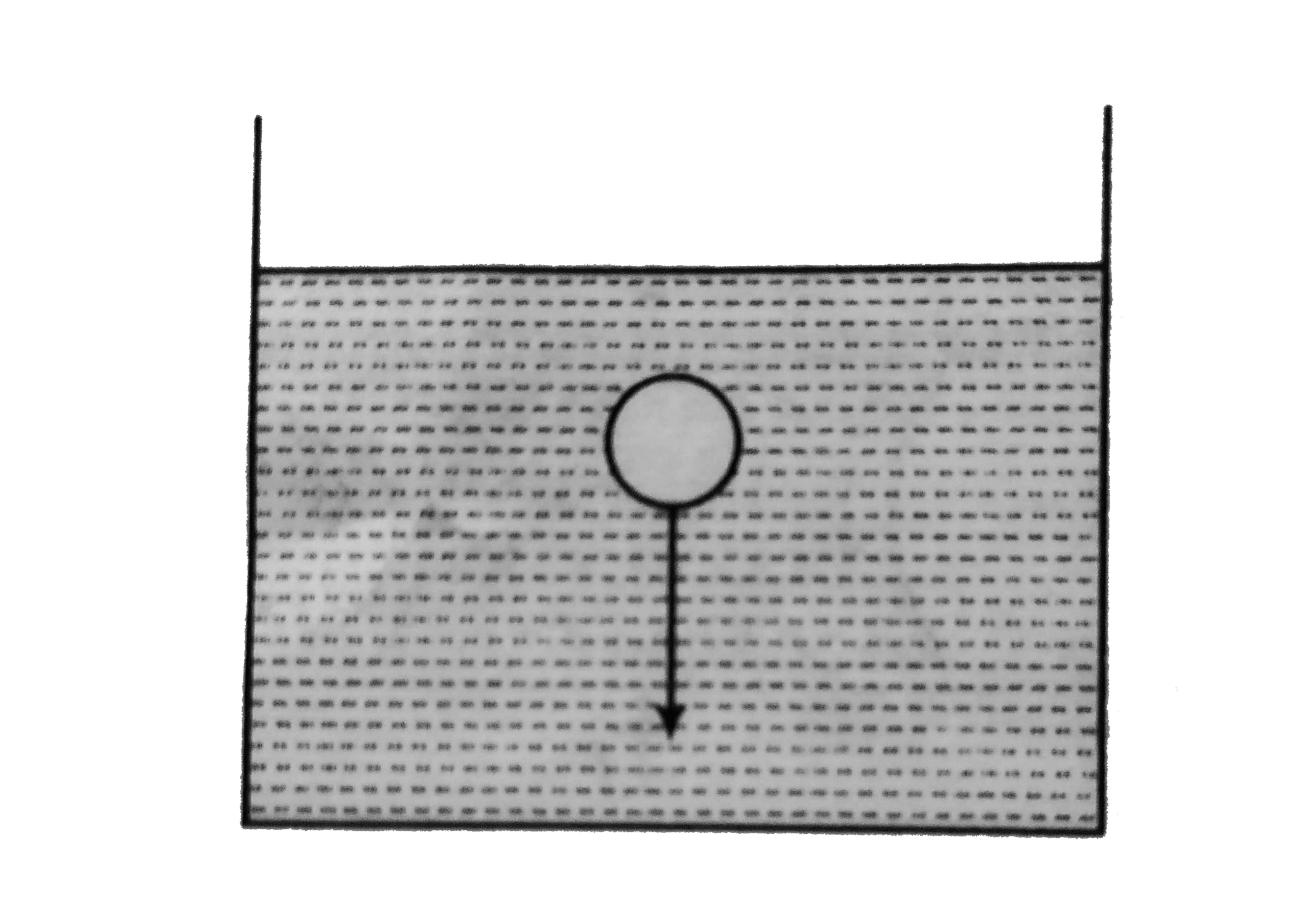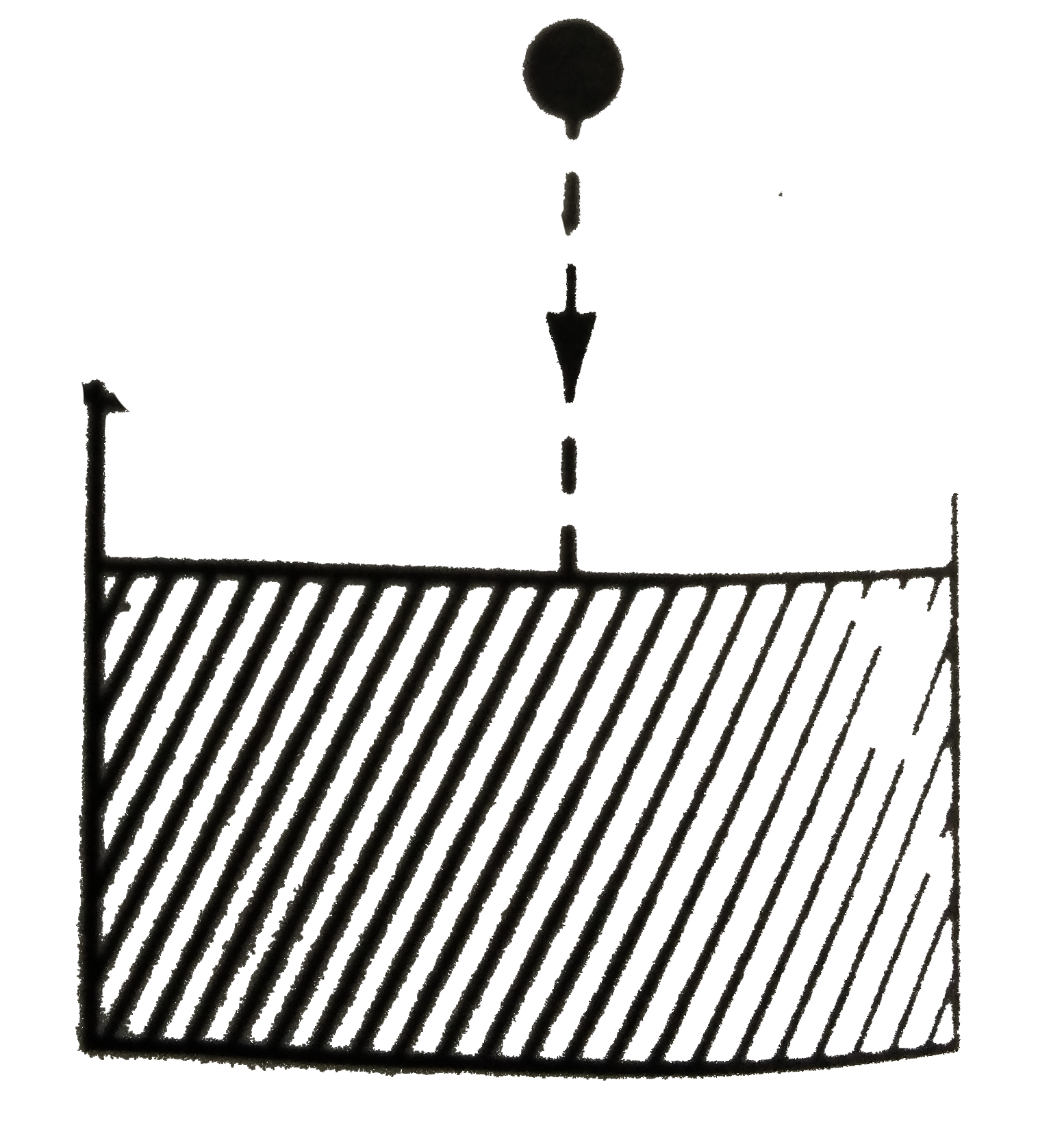A spherical solild of volume V is made of a material of density ρ1. It is falling through a liquid of density ρ2(ρ2<ρ1). Assume that the liquid applies a viscous froce on the ball that is proportional ti the its speed v, i.e., Fviscous=−kv2(k>0). The terminal speed of the ball is
√Vg(ρ1−ρ2)k
Vgρ1k
√Vgρ1k
Vg(ρ1−ρ2)k
Step by step video solution for A spherical solild of volume V is made of a material of density rho_(1). It is falling through a liquid of density rho_(2)(rho_(2) lt rho_(1)). Assume that the liquid applies a viscous froce on the ball that is proportional ti the its speed v, i.e., F_(viscous)=-kv^(2)(kgt0). The terminal speed of the ball is by Physics experts to help you in doubts & scoring excellent marks in Class 12 exams.
Updated on:21/07/2023Topper's Solved these Questions
- SURFACE TENSION & VISCOSITY BOOK - MOTIONCHAPTER - SURFACE TENSION & VISCOSITY EXERCISE - Exercise - 4 | Level-II Previous Year | JEE Advanced
12 Videos
- SURFACE TENSION & VISCOSITY BOOK - MOTIONCHAPTER - SURFACE TENSION & VISCOSITY EXERCISE - Exercise - 3 | Level-II Subjective | JEE Advanced
4 Videos
- SURFACE TENSIONBOOK - MOTIONCHAPTER - SURFACE TENSIONEXERCISE - Exercise - 3 | Section - B Previous Year Problems | AIEEE
12 Videos
- ThermodynamicsBOOK - MOTIONCHAPTER - ThermodynamicsEXERCISE - EXERCISE - 3 SECTION b
26 Videos
Similar Questions
A body weighs W1 in a liquid of density ρ1 and W2 in a liquid of density ρ2. What is the weight of body in a liquid of density ρ3?
View SolutionA stream line body with relative density ρ1 falls into air from a height h1 on the surface of a liquid of realtive density ρ2, where ρ2>ρ1. Find the time of immersion of the body into the liquid.
View Solution
Knowledge Check
A spherical solid ball of volume V is made of a material of density ρ1. It is falling through a liquid of density ρ2(ρ2<ρ1). Assume that the liquid applies a viscous force on the ball that is proportional to the square of its speed v, i.e., Fviscous=−kv2(k>0). The terminal speed of the ball is
A(a) √Vg(ρ1−ρ2)kB(b) Vgρ1kC(c) √Vgρ1kD(d) Vg(ρ1−ρ2)kA solid ball of density ρ1 and radius r falls vertically through a liquid of density ρ2. Assume that the viscous force acting on the ball is F=krv, where k is a constant and v its velocity. What is the terminal velocity of the ball ?
A(4πgr2ρ1−ρ23k)B(2πrρ1−ρ22gk)C(2πg(ρ1+ρ2)3gr2k)DNone of theseA ball of density ρ is released from deep inside of a liquid of density 2ρ. It will move up
Awith an increasing accelerationBwith a decreasing accelerationCwith a constant accelerationDwith zero acceleration
A ball of volume V and density ρ1 is moved downwards by a distance 'd' in liquid of density ρ2. Find total change in potential energy of the system.

View SolutionA block of material has a density ρ1 and floats three-fourth submerged in a liquid of unknown density. Show tht the density ρ2 of the unknown liquid is given by ρ2=43ρ1.
View SolutionA small ball of mass m and density ρ is dropped in a viscous liquid of density σ. Ather some time the ball falls with a constant velocity. Calculate the viscous force acting on the ball.
View SolutionA ball of density ρ is dropped from a height on the suraca of a non-visous liquid of dinsity 2ρ. Choose the correct options.

View SolutionThe terminal velocity V of a spherical ball of lead of radius R falling through a viscous liquid varies with R such that
View Solution
